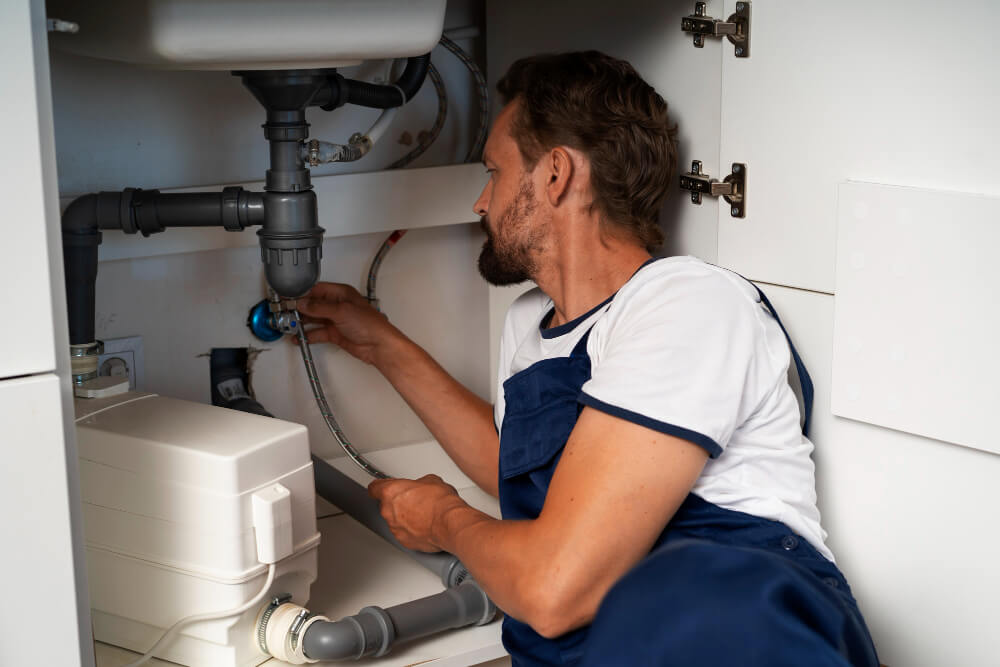DIY vs Professional Drain Cleaning — What’s Really Cheaper?

One of the most frequent plumbing issues that homeowners deal with is a clogged drain. If this happens for the first time, it will not seem too challenging to deal with yourself, perhaps with some store-bought cleaner or a plunger. Professional drain cleaning is perceived to be costly, and most individuals attempt to clean their drains themselves to save money. But – is it really cheaper in the long run?
Using a chemical cleaner or a snake involves costs, risks, and outcomes that must be weighed. Whether you decide to attempt clearing the drain yourself or to contact a professional will depend on the nature of the drain issue, the tools you use, and your level of comfort with plumbing repairs. This article provides an easy-to-understand breakdown of everything you need to know to decide.
Understanding Common Drain Problems
There are multiple reasons for drains becoming blocked. Hair, soap, grease, food, and small debris can build up in the drain over time. Grease is primarily to blame in kitchens, while hair tends to clump in bathrooms and cause slow drainage. Some problems are minor and are efficiently dealt with. Knowing what kind of blockage you are dealing with can help determine if you should attempt to clear it yourself or call a professional.
DIY Drain Cleaning Methods
1. Using a Plunger
A plunger utilizes pressure to push the clog through the pipes. Its use is inexpensive and straightforward. This technique is often effective for minor blockages. But if the clog is further down the pipe, plunging may not be able to reach it. Too much force can even break pipes that are already old, particularly in older homes.
2. Chemical Cleaners
Commercial drain cleaners chemically dissolve grease or hair in the pipes. They are quick and require no effort. However, chemicals can leach from metal pipes and are environmentally dangerous. On top of that, if it is a solid or deep-seated clog, the substances may fail to take effect, leaving you with the same issue and more repair expenses.
3. Manual Snaking
With a handheld drain snake, you can access deeper clogs. Better than plungers or chemicals, they work on stubborn clogs. Snaking takes some practice and can scratch pipes or push the clog further down if misused. This can be difficult with long or flexible pipes.
Professional Drain Cleaning
Professional plumbers have the tools and experience a DIY effort cannot replicate. They deploy motorized “snakes”, high-pressure jets of water, and cameras to find apparent blockages.
Advantages of Professional Services
Efficiency: Experts can remove difficult clogs in no time at all.
Long-term fix: Technicians regularly clean deeper parts of the plumbing so they don’t get blocked again.
Pipe Safety: Professionals know how not to break old or brittle pipes.
Problem diagnosis: Besides what you might not see, a plumber offers you the chance to find out if there are any deeper problems, such as pipe corrosion or leaks.
Cost Consideration
Professional cleaning may seem expensive upfront, often costing more than DIY products. However, the risk of damage, recurring clogs, or ineffective cleaning can make DIY more costly. Damaged pipes or calling a plumber after a failed DIY attempt usually costs more than starting with professional help.
Risks of DIY Drain Cleaning
Pipe Damage: Harsh chemicals or improper snaking can weaken pipes.
Incomplete Cleaning: A partially cleared drain will clog again, costing extra effort.
Health Risks: Chemicals can irritate skin or eyes, and blockages may harbour bacteria.
Time Consumption: DIY methods can take hours and fail, leading to frustration.
When DIY Makes Sense
DIY works well for minor, accessible clogs. Hair in bathroom sinks or grease buildup in kitchen drains can often be cleared without professional help. A plunger, hand snake, or eco-friendly chemical can save time and money if the blockage is small.
When to Hire a Professional
Recurring Clogs: If a drain clogs repeatedly, the problem is likely deeper in the plumbing.
Slow Drains in Multiple Areas: This can indicate mainline issues.
Old or Fragile Pipes: Chemicals and aggressive snaking can worsen pipe damage.
Unpleasant Odours or Backups: Foul smells or sewage backup need urgent professional attention.
Comparing Costs: Short-Term vs Long-Term
DIY Costs: Plungers and snakes are one-time purchases, and chemical cleaners are cheap. Total might range from $10 to $50.
Professional Costs: Hiring a plumber can cost $100 to $300 for basic cleaning. For deep or severe clogs, it can go higher.
At first glance, DIY is cheaper. But if it fails or causes damage, repair costs increase significantly. Although costlier initially, professionals often save money and time in the long run.
Additional Benefits of Professional Drain Cleaning
Professionals provide preventive solutions, too. They can clean the entire pipe system, reducing future clogs. They also offer maintenance tips to extend pipe life and suggest eco-friendly cleaning methods.
Conclusion
DIY drain cleaning can work for minor clogs. It is often quicker and cheaper for small matters, and most homeowners will try that route first. However, professional drain cleaning is usually the safe and cost-effective route once the clog is persistent. When you look closely at the risk of potential damage and time, hiring a plumber can help you spend less money and worry less. Please consider your drain problem carefully before deciding, and remember, sometimes spending money for professional service is the smartest and cheapest option combined.
Plumbing Problem? Call Us Today
Plumbing Problem? Call Us Today

